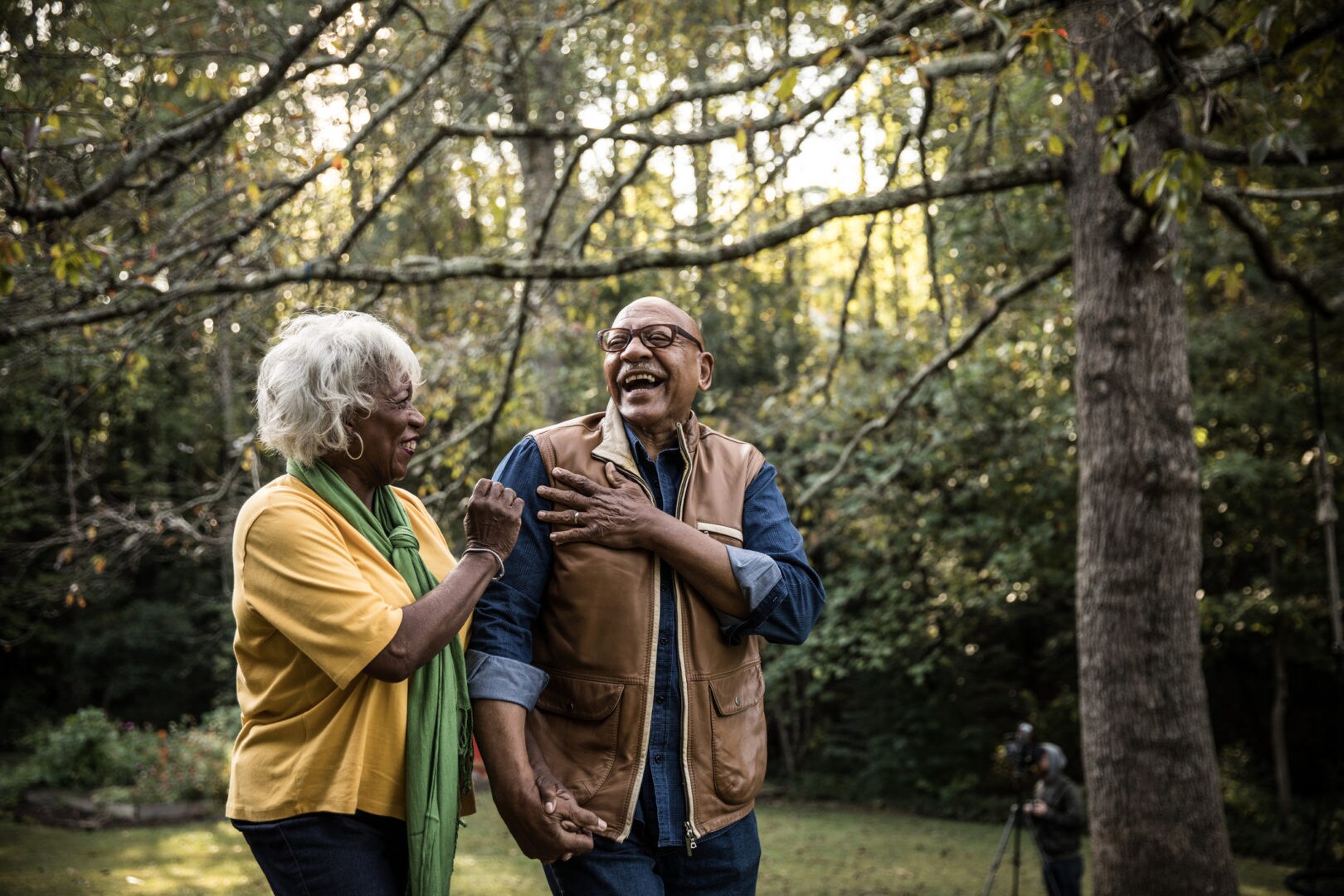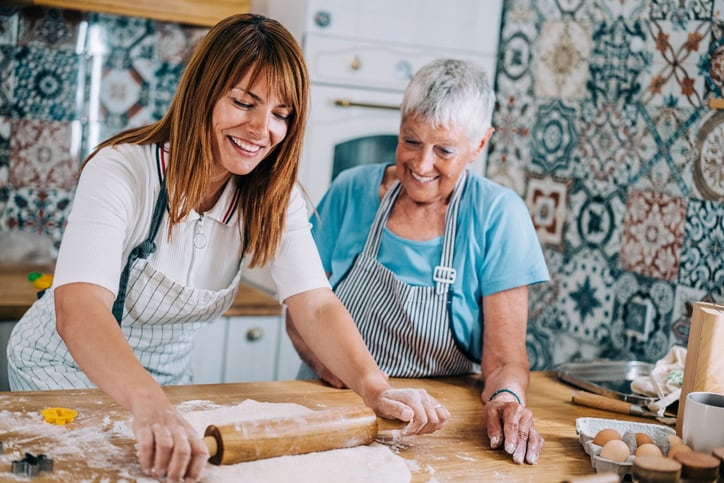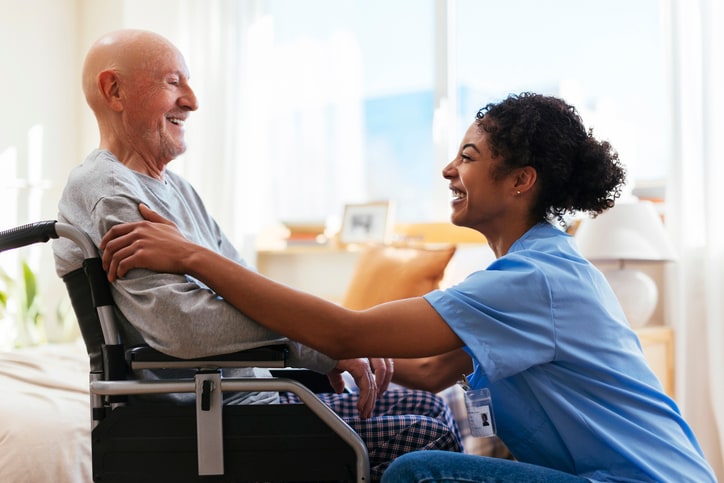Wrinkles, gray hair, occasional aches and pains — these are just a few of the minor frustrations that we’ve come to expect with age. As an average 65-year-old can expect to live an additional 19 years, according to from the Centers for Disease Control and Prevention (CDC), the quality of that phase of life becomes increasingly important. But for African Americans, growing older brings more than mere annoyances or other age-related setbacks.
More than four million African Americans are 65 or older. While the group is far from homogeneous — and a 65-year-old’s experiences and needs likely differ from those of someone 10 or 20 years older — these elders share some unique challenges.
Hit hard by the most difficult health challenges
“Aging is a critical topic right now, especially for the African American community,” says Donna Benton, a research associate professor of gerontology and assistant dean of diversity and inclusion at the University of Southern California. “[The group] tends to have higher risk for diseases like Alzheimer’s, stroke and other health conditions that make their care more complex.”
According to the Alzheimer’s Association, about 1 in 9 people 65 and older has Alzheimer’s. African Americans are 64% more likely to develop the disease or a related dementia. (Researchers suspect that factors such as high rates of diabetes and obesity in the community may play a role.) Despite their increased risk, Black seniors tend to be diagnosed much later than other groups. Without a formal diagnosis, they have fewer treatment options and resources at their disposal.
But the disparities in medical care for seniors isn’t limited to Alzheimer’s. Black male seniors are significantly less likely to receive treatment for osteoporosis, which can lead to fractures. And if those seniors do break a bone, they may suffer more than their peers of other races. Researchers have found that African Americans may not be given the same pain management options as other groups. The reason? A persistent myth in the medical community that Black people are less sensitive to pain.
There may be one positive note, however: Some studies suggest that acute care for heart attack and stroke appear to differ little between racial groups, according to data provided by the CDC Division of Heart Disease and Stroke Prevention.
Bearing a financial strain
Retirement often means living on a fixed income and tight budgets. Yet retirees who once had solid middle-class jobs don’t necessarily have pensions that can keep pace with the costs of treating chronic conditions or long-term care. For African American seniors, whose incomes are on average $18,000 less than other people 65 and older, these additional expenses can bring significant financial strain.
“[The Black community] has a high percentage of people who aren’t in poverty who can’t qualify for [lower-cost] services,” says Benton. “The result is a bigger financial burden and higher out-of-pocket costs than other groups — some $7,000 to $8,000 more.”
Combine those additional expenses with lower rates of insurance coverage (32% for African Americans vs. 46% for white Americans) and fewer advance directives in the community (44% vs. 24%), according to the U.S. Department of Health and Human Services, and you have the makings of golden years that are anything but for seniors and their family caregivers.
“Look at the history of disparities in health access, which, in turn, contributes to people not being able to care for chronic but high-risk conditions, plus the lack of insurance,” says Benton. “If you [take] all that together, you have a much sicker population that caregivers are dealing with.”
The challenges of asking for (and offering) care
There is one key cultural difference that may compound health and financial challenges faced by Black seniors. In short, they often struggle in silence.
“Regardless of socioeconomic status, older [Black] people don’t like to tell their business,” says Angie Boddie, director of Health Programs for the National Caucus on Black Aging, an advocacy group. “Not sharing is a big deal.”
(Case in point: Multiple seniors contacted for this article were hesitant to divulge any challenges they experienced.)
As a result, many seniors might not voice their concerns or frustrations. That means it’s all the more critical that their loved ones and caregivers pay close attention.
“Caregivers play an integral role,” says Benton. “But they also need to know what resources are available.”
What caregivers can do
Providing care to the aging Black community requires additional diligence to combat the myriad challenges the community faces. Here’s how you can help.
1. Help break the silence
African Americans have endured much over the course of history, but it’s taken courage and often a quiet strength to do so.
“We mask our needs,” says Benton. “We don’t want to be linked to looking for handouts.”
That means Black seniors likely won’t let on that they’re having a health problem.
Family and paid caregivers may be the first line of defense when it comes to identifying new health issues. Having a complete care plan, which ensures caregivers are aware of all known medical conditions, along with providers and treatment (or not), can help. If a symptom arises and it’s not on the plan, the caregiver can raise the alarm. The CDC has a good example to follow.
2. Enable empowerment
“Older people will just take their doctor’s word and not challenge it,” says Boddie, when discussing the concerns of the Black community. “We need to teach them to advocate for themselves.”
That’s not always easy to do. To encourage this often fundamental behavior change for some seniors, Boddie suggests taking several steps:
- Encourage the person to write down any concerns or questions before and during discussions with their doctors.
- Before appointments, set up practice sessions with a trusted relative or friend so the person feels more comfortable having an open and honest conversation.
- Remind the senior to speak up when a situation doesn’t feel right or sound right and offer your support when that happens.
Benton also advises caregivers to be proactive even if they can’t be part of every medical conversation.
“Assuming the person and their doctor are OK with it, you can look at notes about appointments online,” she says. “That can help you better understand what’s going on and navigate the health care system.”
3. Use your resources
It should go without saying, but information truly is power.
“I’m always taken aback by the number of adults who do not take advantage of the state and federal resources available,” Boddie says. “There is an agency for aging in every state and territory.”
These organizations serve multiple purposes. They can connect to home health services, provide a script to help convince a loved one they need (and how to get) different types of insurance or coverage or even handle simple queries, like whether or not to get a flu shot and where to get it. And you don’t have to visit in person.
“People always think I have to go to a ‘place’,” says Boddie. “But you can get plenty of guidance over the phone.”
For those seniors and caregivers who are online, a good place to find community-based resources is the Eldercare Locator. The nationwide portal offers a wealth of information on caregiving, senior services, housing and elder rights specific to your location.
4. Build upon the inherent resilience of seniors
Benton believes it’s important to encourage seniors to focus on the things they can still do as they grow older.
“We do get wiser in different ways and are able to adapt [to new situations] every year,” she says. “For instance, maybe you lose some of your friends or social networks. But if you still have a purpose every day, like taking care of a pet or gardening, you’ll age well. Do what you can do — but don’t be afraid to ask for help.”
The best advice for both seniors and caregivers may come from Thelma Buckson, a retired nurse in Baltimore, who lived to 102. (And who lived alone despite having her leg amputated and received just one weekly visit from a home health aide.
“Never stop doing for yourself for as long as you can,” she said in 2020. “Never give up.”



